Dental Implants In Aurora, IL
Dental Implants
If you live in or near Aurora, IL, City of Lights Dental can help you with tooth replacement options or any other dental services you may need. In this article, we’ll explain some of the most common causes of tooth loss, additional problems caused by tooth loss, and one of the most popular tooth replacement options: dental implants.

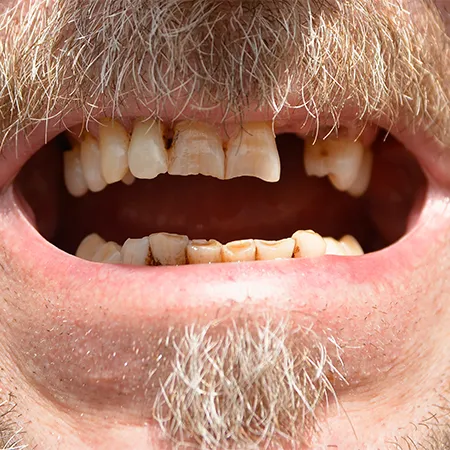
What Causes Missing Teeth?
As we age, it is normal to lose primary teeth- but the secondary, or permanent, teeth that replace them should last a lifetime. However, there are several health conditions and other factors that could cause or increase the risk of tooth loss.
Genetics
- Hypodontia: up to 5 natural teeth missing
- Oligodontia: 6 or more natural teeth missing
- Anodontia: all natural teeth missing
Injury/Trauma
An impact on the face/mouth area can cause tooth loss. If you lose a tooth due to trauma, it’s important to see your dentist within 30 minutes to save the natural tooth.
Gum Disease
Periodontitis, commonly known as gum disease, is a common cause of tooth loss. In this condition, pockets develop between the gums and teeth, which cause jawbone deterioration and gum recession. The condition starts with redness/inflammation and bleeding in the gums and can be reversed with prompt attention. If ignored, the condition will progress and require extensive treatment.
Additional Factors
In addition to the above, there are a few other factors that can cause or contribute to tooth loss.
- Cavities/tooth decay
- Smoking
- Poor nutrition
- Little to no access to quality dental care
- Poor oral hygiene habits
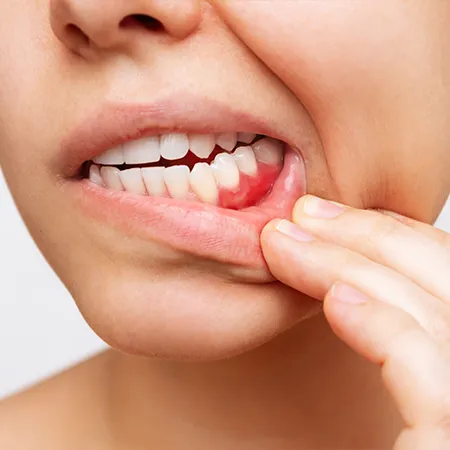
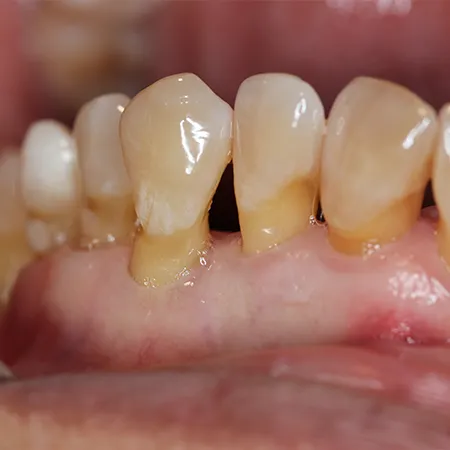
What Problems Are Caused by Missing Teeth?
Speech/eating
Shifting
When a tooth is missing, the adjacent teeth will naturally begin to shift to fill in the gap, which can cause teeth to be crooked or uneven. This shifting can make it difficult to clean between teeth, which encourages bacteria growth, which leads to tooth decay.
Irregular bite
Shifting can ultimately result in an irregular bite, or malocclusion, such as a crossbite, underbite, or overbite. This can ultimately lead to headaches or TMD, and can increase the risk of nighttime bruxism.
Bone loss
If your jawbone doesn’t have the stimulation from tooth roots, it will begin to become brittle and deteriorate. This leads to additional tooth loss and increases the risk of gum disease.
Gum disease
A missing tooth exposes the gum, allowing bacteria to settle in. This can lead to gum disease, also known as periodontitis. Gum disease can result in a variety of serious and deadly medical conditions.
What are Dental Implants?
Dental implants are the gold standard of tooth replacement. This is a device that consists of three pieces: an implant screw, an abutment, and a crown. The implant screw is inserted into the jawbone, where it acts as a tooth root. The crown sits on top of the implant screw, replacing the visible portion of the tooth. The abutment connects the two pieces.
What to Expect Before, During, and After
Before the surgery
The first step in the process is the initial consultation. During this visit, the dentist will perform a comprehensive exam. In addition, x-rays and other necessary imaging will be taken. The dentist will also discuss your oral and overall health history, as well as your current habits. This information will be used to create your treatment plan.
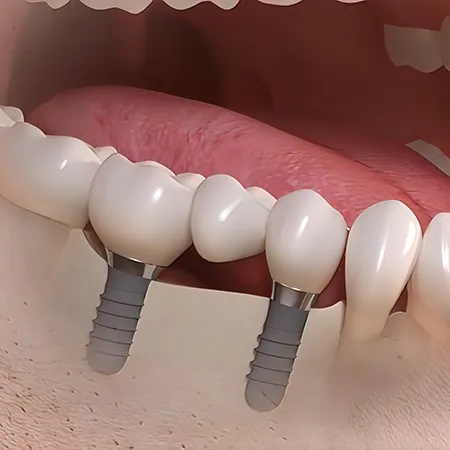
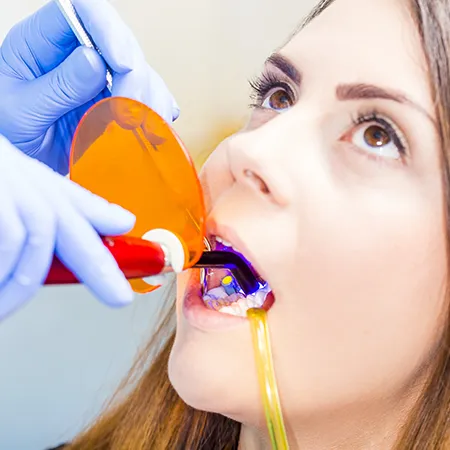
During the surgery
Placing the implant
Placing the abutment
If needed, you will return after a few months to have the abutment placed. At this time, you will choose your replacement teeth based on your specs. This usually takes a few more weeks.
Placing your teeth
After
Before the surgery
Aftercare is critical. Some of the most common aftercare instructions include:
- Stick to a soft-food diet
- Avoid dairy for the first few weeks
- Practice proper oral hygiene
- Visit the dentist regularly- keep all follow-up appointments.
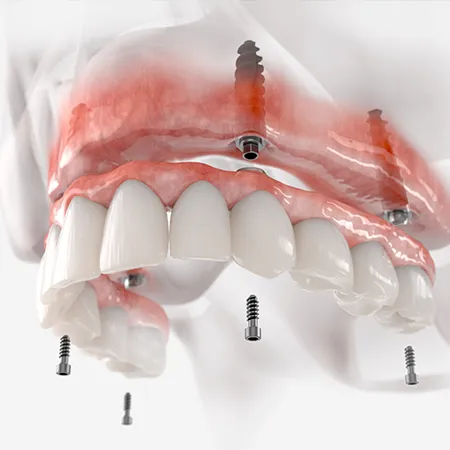
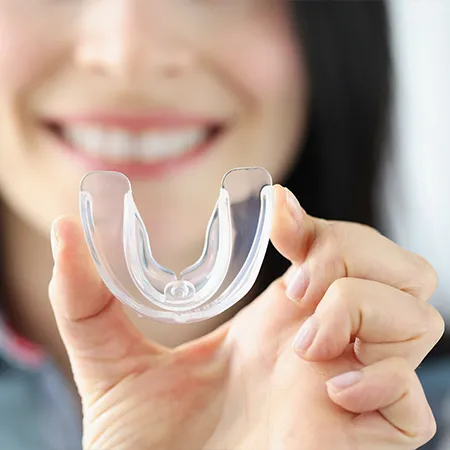
Reducing the Risk of Implant Failure
- Work with a qualified implantologist
- Carefully plan your treatment with your provider
- Practice proper oral hygiene
- Keep all follow-up appointments
- Wear a nightguard if prone to bruxism
- Wear a mouthguard if playing contact sports
Why choose City of lights Dental In Aurora, IL?
If you are missing one or more teeth, schedule your consultation with the team at City of Lights Dental in Aurora. We offer several options for tooth replacement including dental implants. We also offer a variety of other dental services to keep your mouth healthy and help you maintain your natural teeth as long as possible.
We are located on West Galena Boulevard. Our office hours are Tuesday through Friday 8:30 AM to 5:00 PM. We are open from 8:30 AM to 1:00 PM two Saturdays a month.


